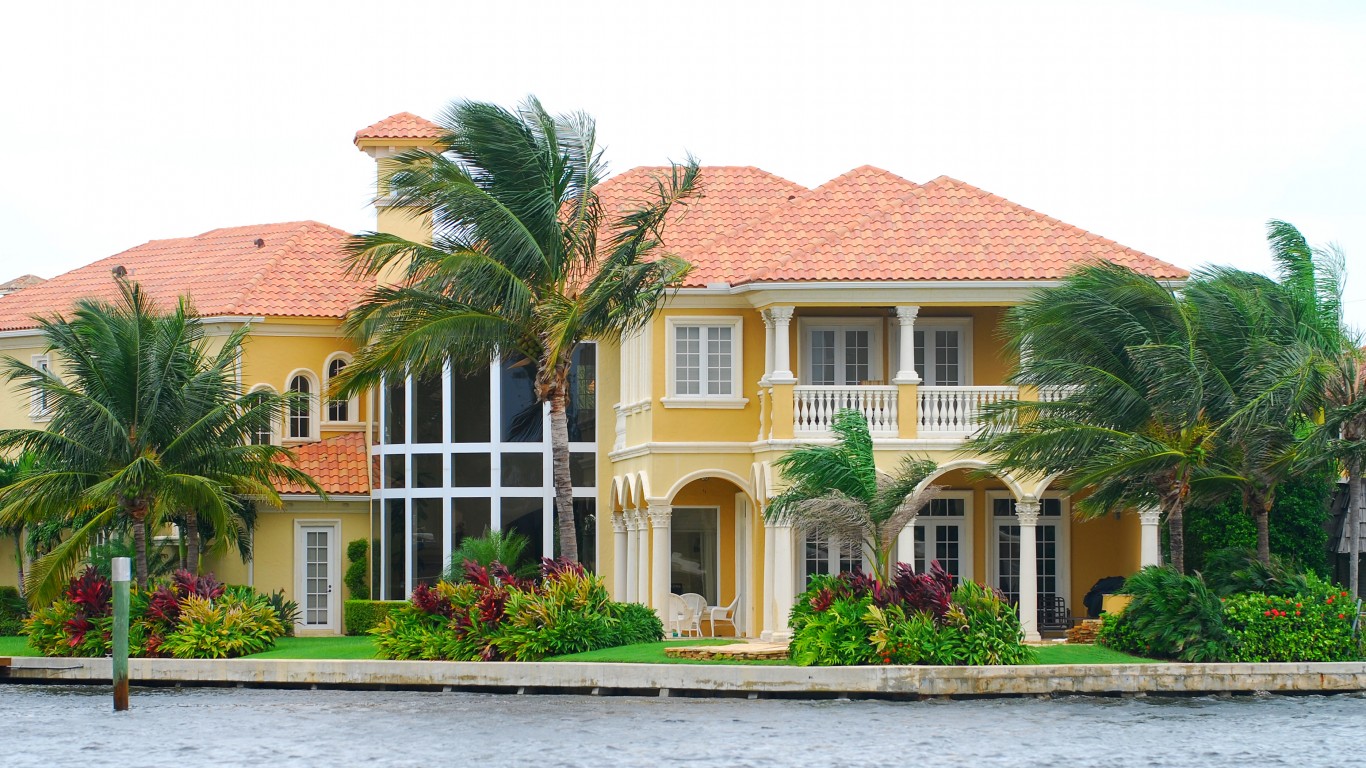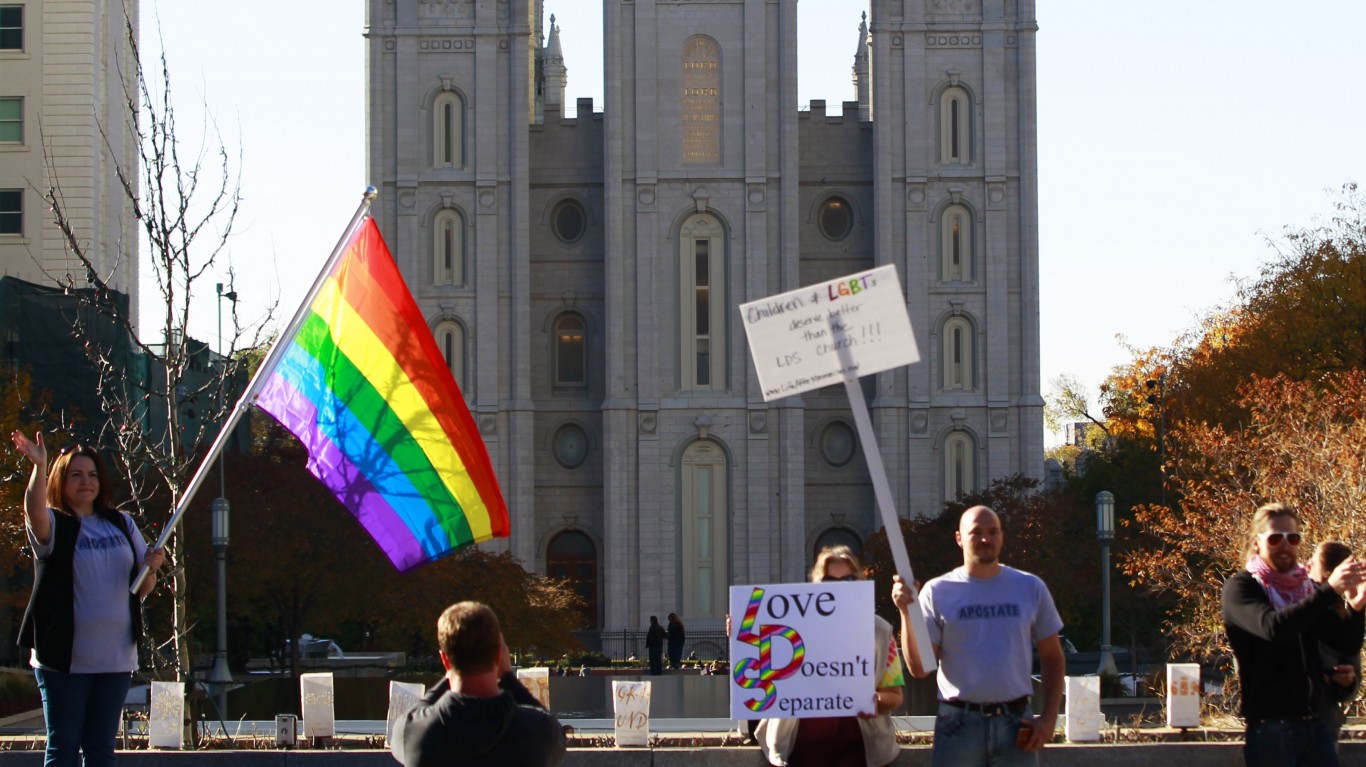
Progress has been made to improve the civil rights of LGBTQ Americans in recent years, most notably in 14 states including Illinois, Minnesota, and Colorado as well as at the federal level. A landmark 2015 Supreme Court decision extended all rights and benefits of marriage to same-sex couples, and in 2020 the high court ruled that Americans can seek recourse for employment discrimination based on sexual orientation or gender identity through the Equal Employment Opportunity Commission. (See other ways in which American life has changed in the last decade.)
Not every state protects its LGBTQ residents, however. In Pennsylvania — where on Nov. 11, 36-year-old Angel Naira became the 47th transgender or gender non-conforming person to be killed violently in the U.S. this year — there are no laws that address hate crimes based on sexual orientation or gender identity. (These are the states with the most hate groups per capita.)
The Keystone State also lacks LGBTQ protections in other areas, including adoption and foster care. Despite this, Pennsylvania actually ranks average in LGBTQ equality. The Movement Advancement Project, a nonprofit civil rights group, has identified nearly two dozen states that offer fewer civil protections to their LGBTQ residents than Pennsylvania does.
Many of these states exclude LGBTQ people from their anti-discrimination statutes. Others have passed laws that specifically target people based on sexual orientation and/or gender identity. In addition, many states also still permit conversion therapy, a pseudoscience that attempts to change sexual orientation, and allow defendants to claim temporary insanity when charged with assault or murder if the victims were LGBTQ people extending unwanted sexual advances.
Click here to see the 23 states that offer little or no protections to LGBTQ people
To identify the states where LGBTQ communities have the fewest legal protections, 24/7 Wall St. reviewed the non-discrimination laws (or lack thereof) in each state as reported by the Movement Advancement Project as of early November 2021. The percentage of each state’s LGBTQ population is from data published by the UCLA Williams Institute School of Law, and is current as of July 2020.
Note that the specifics cited for each state are not comprehensive. In all cases, there are additional examples of the ways in which LGBTQ communities lack legal protection.
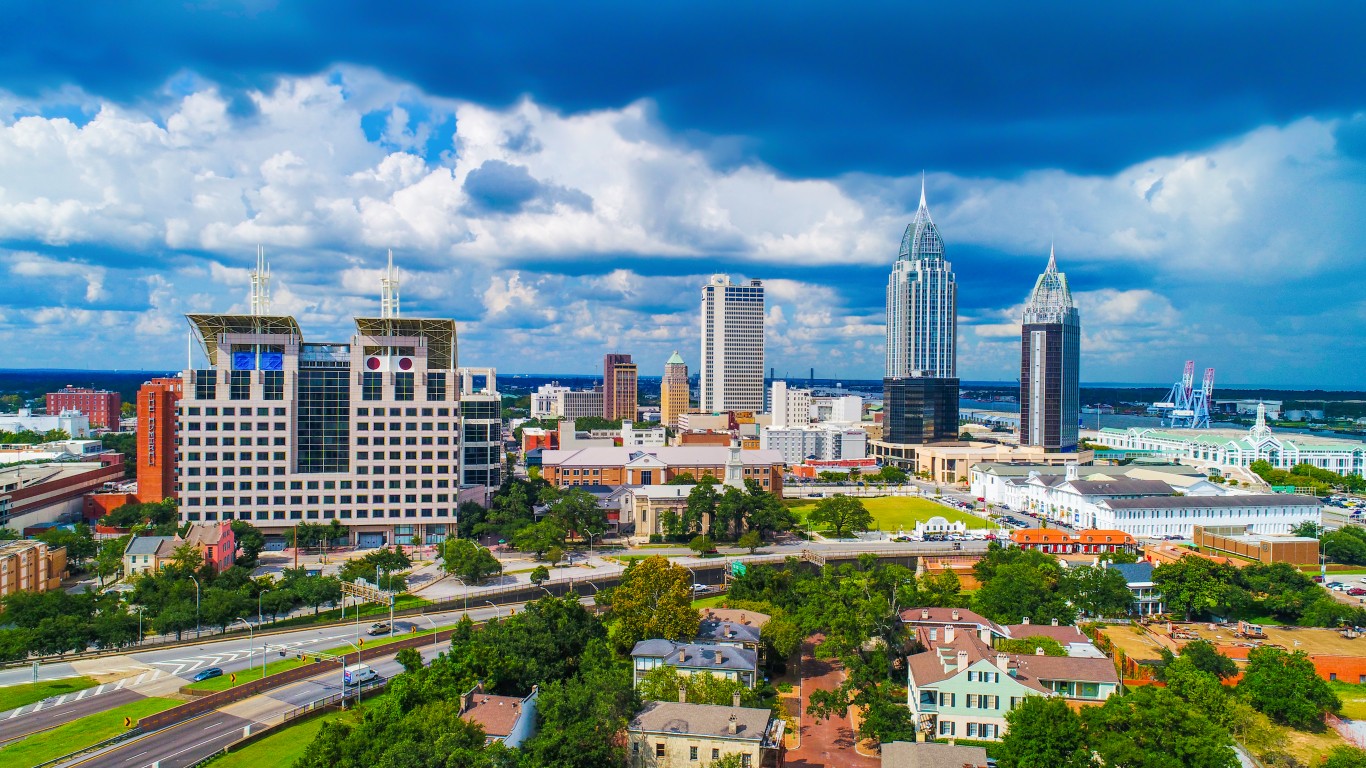
1. Alabama
> Pct. of population that identifies as LGBTQ: 3.1%
Alabama is one of nine states with numerous laws actively hostile to LGBTQ residents, among other things permitting medical professionals and child welfare agencies (if they don’t receive public funds) to invoke a religious exemption in denying services based on sexual orientation or gender identity. (Alabama is the only state in the nation with a constitutional religious exemption law.)
[in-text-ad]
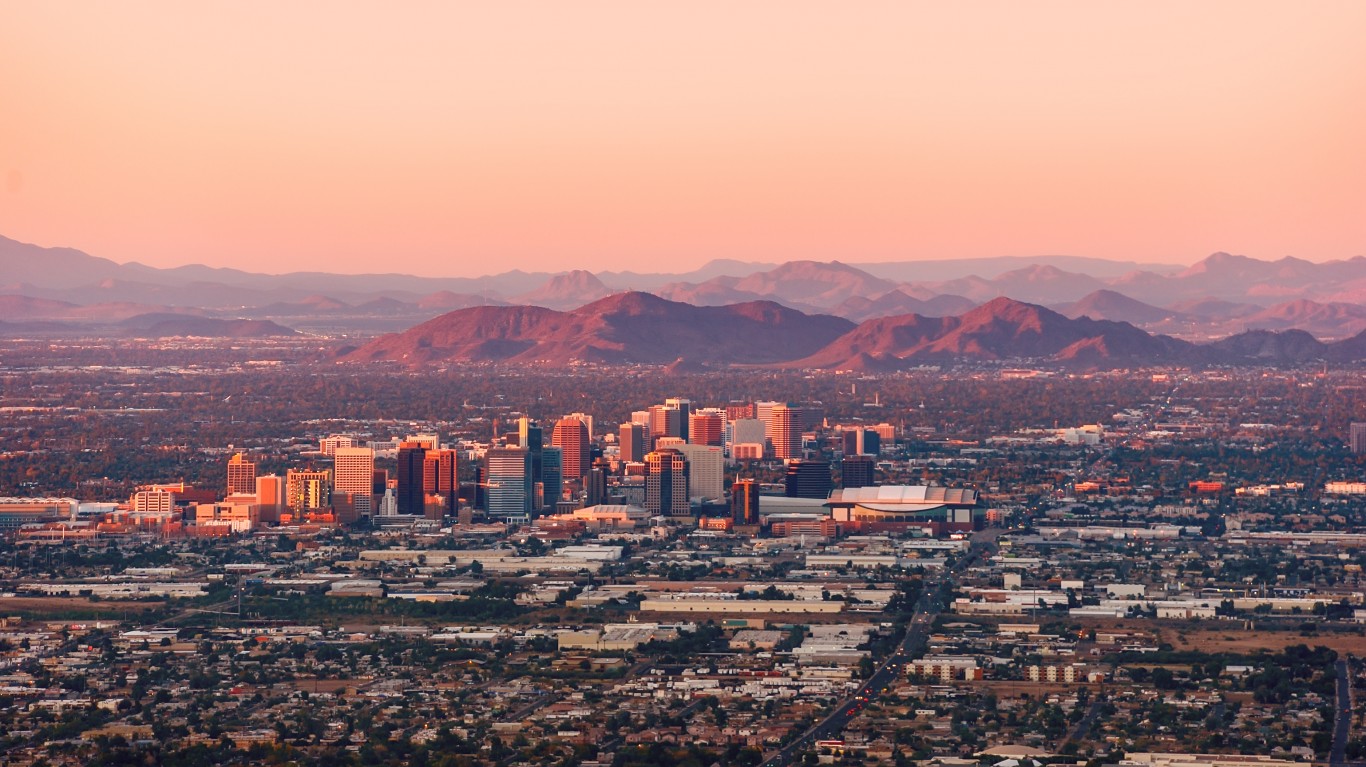
2. Arizona
> Pct. of population that identifies as LGBTQ: 4.5%
Arizona lacks protections for LGBTQ parents seeking to adopt, and there is no LGBTQ-inclusive language in its state family-leave laws. There is also no ban on conversion therapy and there are no state laws prohibiting lenders from denying services based on sexual orientation or gender identity. State hate-crime laws cover sexual orientation but not gender identity.
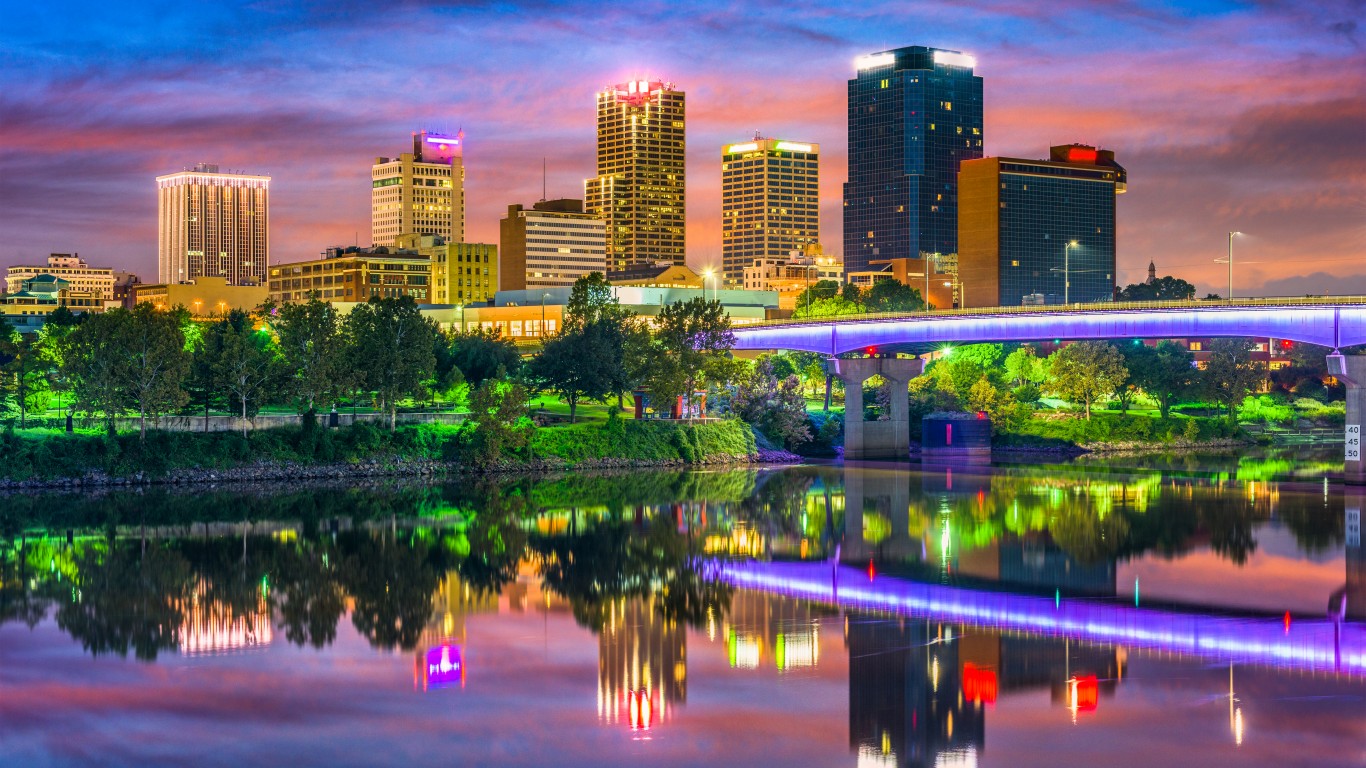
3. Arkansas
> Pct. of population that identifies as LGBTQ: 3.3%
Arkansas is one of nine states with laws specifically targeting LGBTQ people rather than just excluding them from anti-discrimination statutes. The state prohibits cities and counties from passing nondiscrimination laws involving LGBTQ communities and applies a broad interpretation of religious exemptions that allows medical professionals to deny services based on sexual orientation or gender identity.
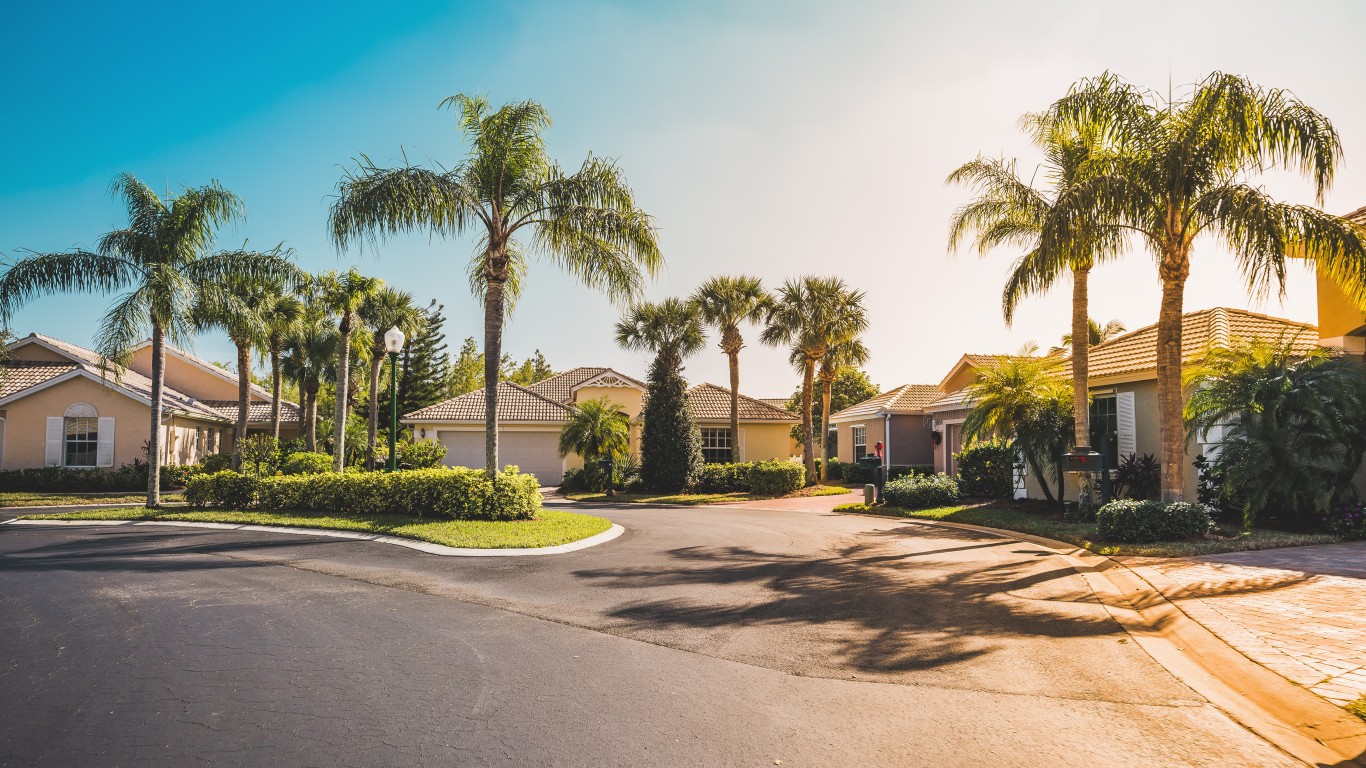
4. Florida
> Pct. of population that identifies as LGBTQ: 4.6%
Florida has no anti-discrimination or anti-bullying laws covering LGBTQ students and it lacks transgender-inclusive benefits for state employees. Hate-crime laws cover sexual orientation but not gender identity.
[in-text-ad-2]
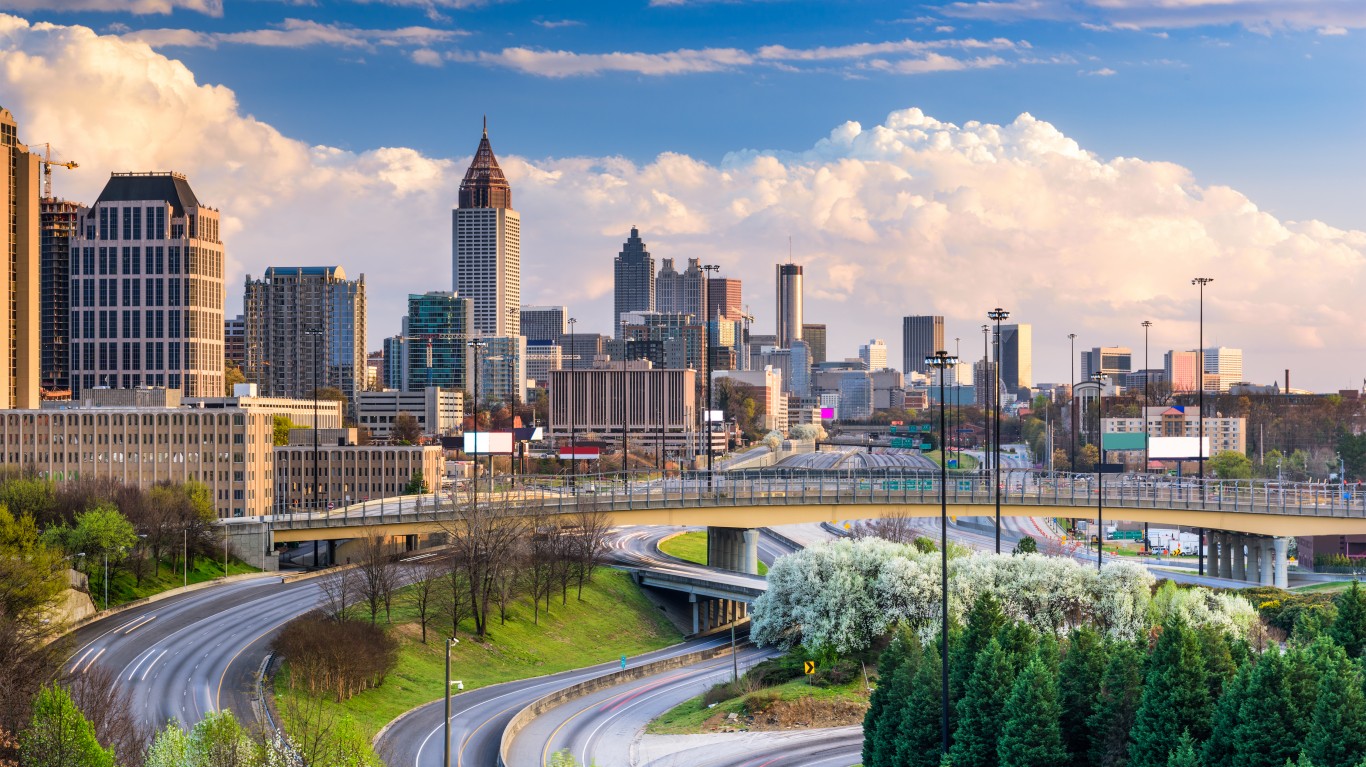
5. Georgia
> Pct. of population that identifies as LGBTQ: 4.5%
Georgia is another state with laws specifically targeting LGBTQ people, not just anti-discrimination laws excluding them. For example, Georgia denies name changes for people based on gender identity and specifically targets people based on gender identity in its state Medicaid policy. Georgia has no ban on conversion therapy.
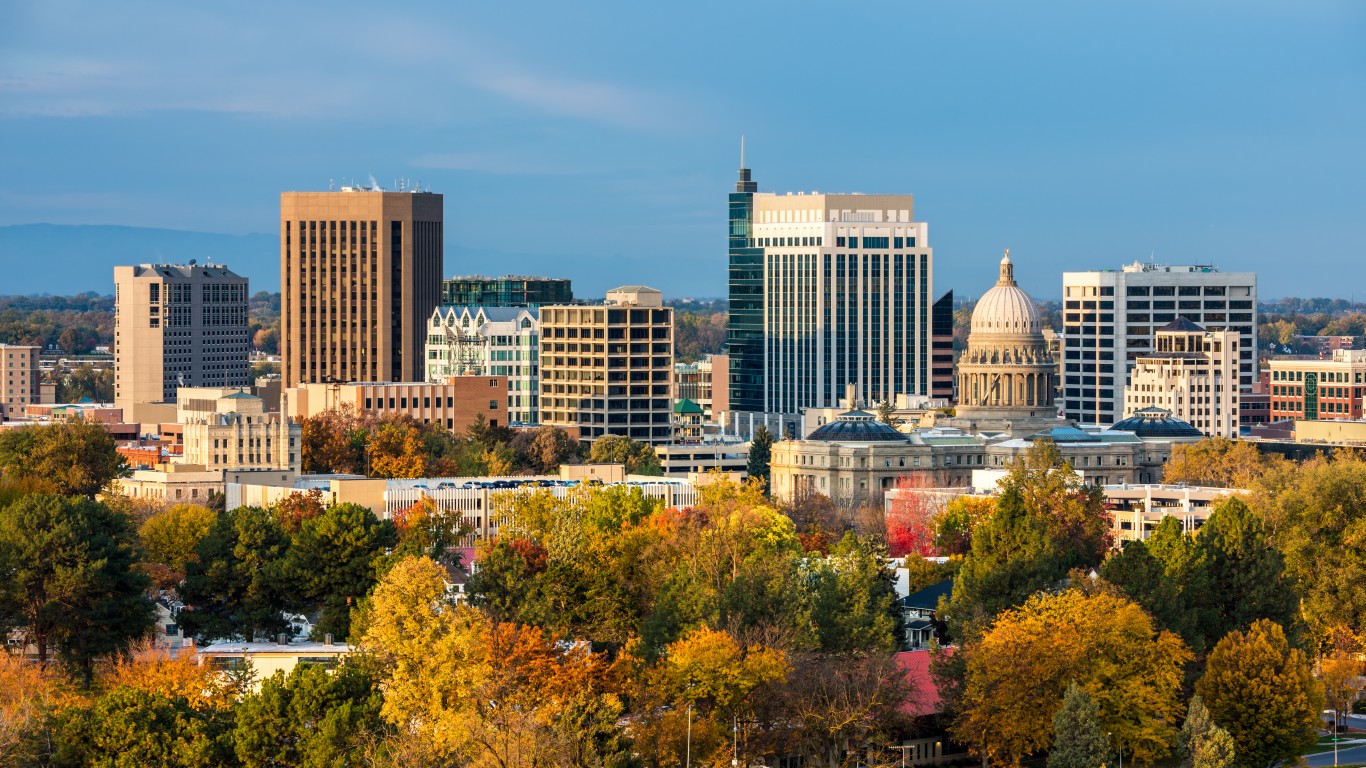
6. Idaho
> Pct. of population that identifies as LGBTQ: 2.8%
Idaho state law offers no protections based on sexual orientation or gender identity in relation to adoption or foster care, and it lacks inclusive language in its official definition of “spouse” or “partner.” Similarly, LGBTQ residents are not protected from discrimination in credit or lending. There are no trans-inclusive health benefits for state employees.
[in-text-ad]
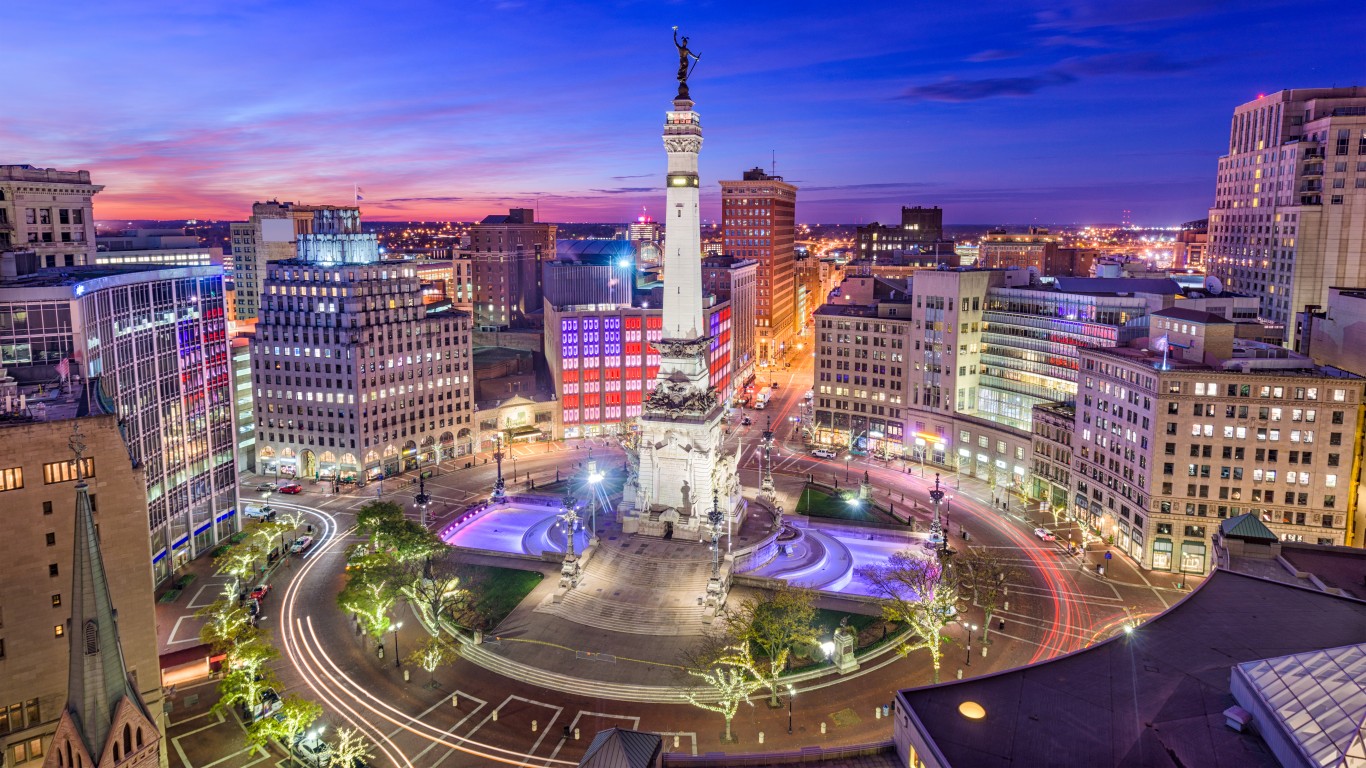
7. Indiana
> Pct. of population that identifies as LGBTQ: 4.5%
Indiana does not offer hate crime protections based on sexual orientation or gender identity, and along with other states permits the so-called “panic defense,” under which a defendant may claim temporary insanity when charged with assault or murder based on unwanted same-sex sexual advances.
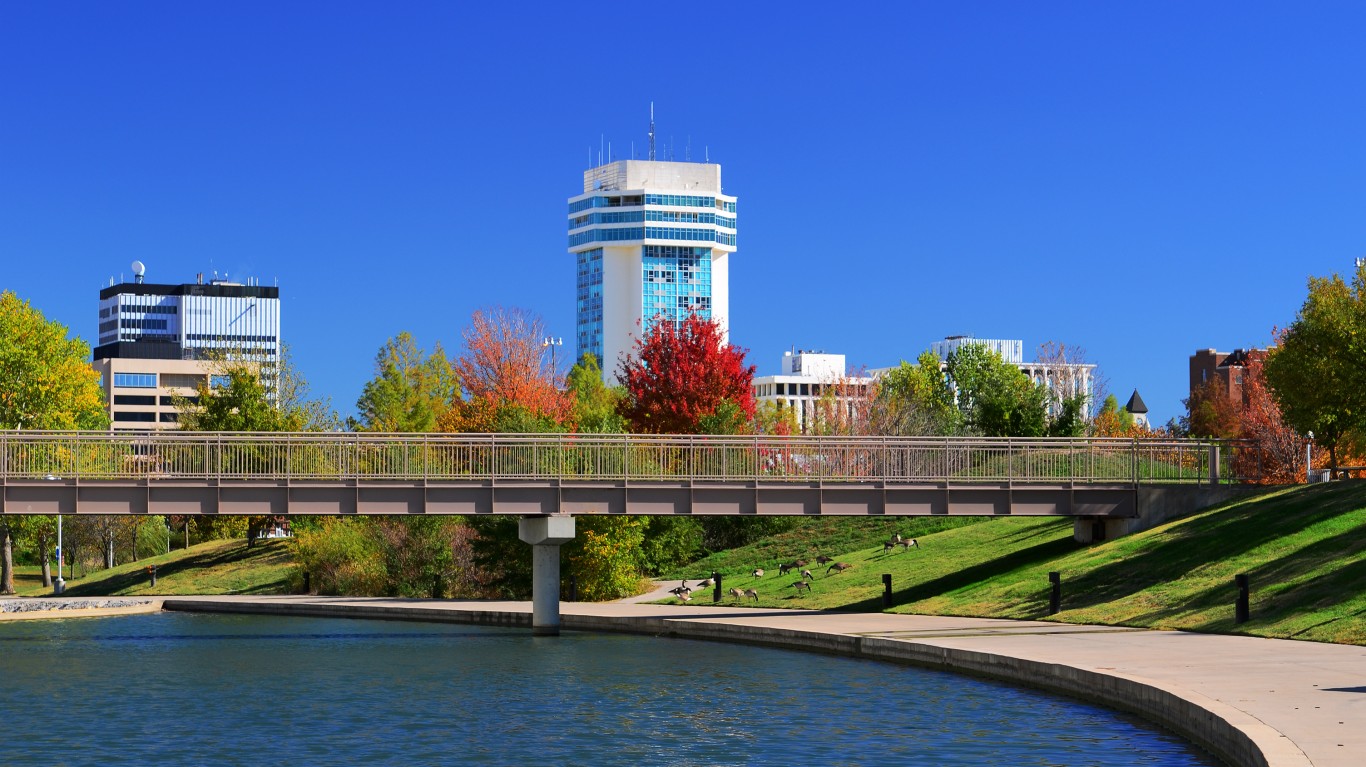
8. Kansas
> Pct. of population that identifies as LGBTQ: 3.3%
Kansas allows child welfare and wedding agencies to claim a religious exemption in denying service based on sexual orientation or gender identity. Nondiscrimination and anti-bullying laws exclude LGBTQ students and there’s no ban on conversion therapy.
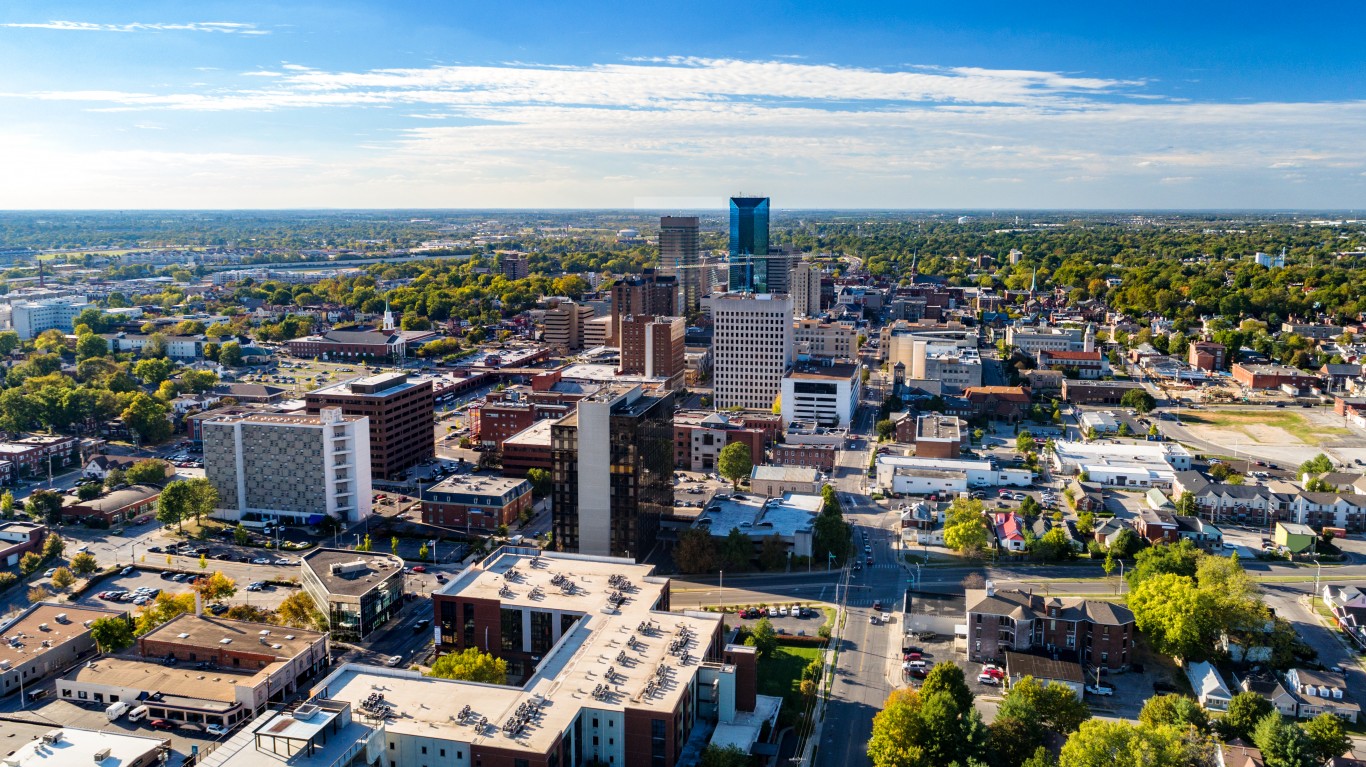
9. Kentucky
> Pct. of population that identifies as LGBTQ: 3.4%
Kentucky doesn’t include attacks based on gender identity in its definition of hate crimes, and its non-discrimination lending laws permit denying loans based on sexual orientation or gender identity. There’s no state law prohibiting private insurers from denying coverage based on sexual orientation or gender identity.
[in-text-ad-2]
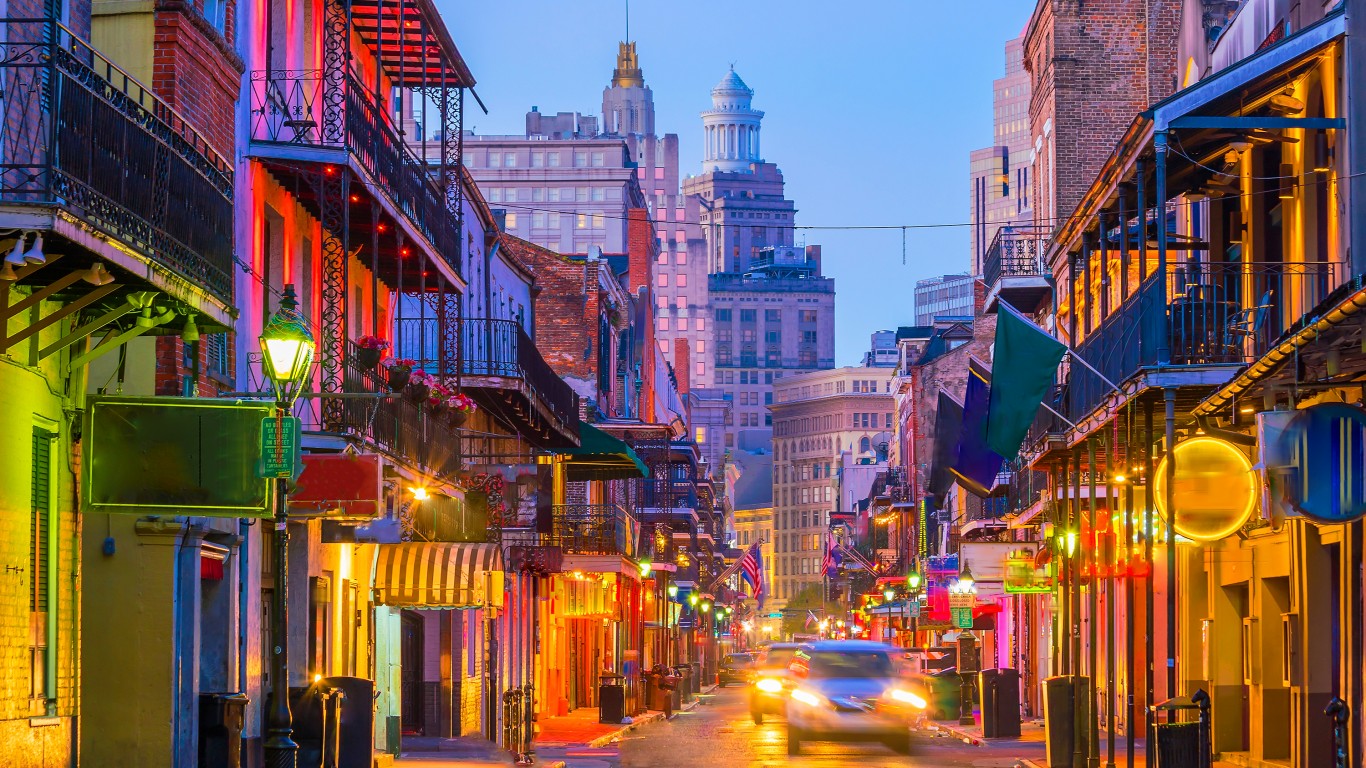
10. Louisiana
> Pct. of population that identifies as LGBTQ: 3.9%
Louisiana is one of nine states with numerous laws that specifically target LGBTQ communities rather than just excluding them from non-discrimination protections. One example is a law that restricts educators from discussing LGBTQ topics in schools. There are no state laws that protect against discrimination in employment, housing, public accommodations, or lending based on sexual orientation or gender identity.
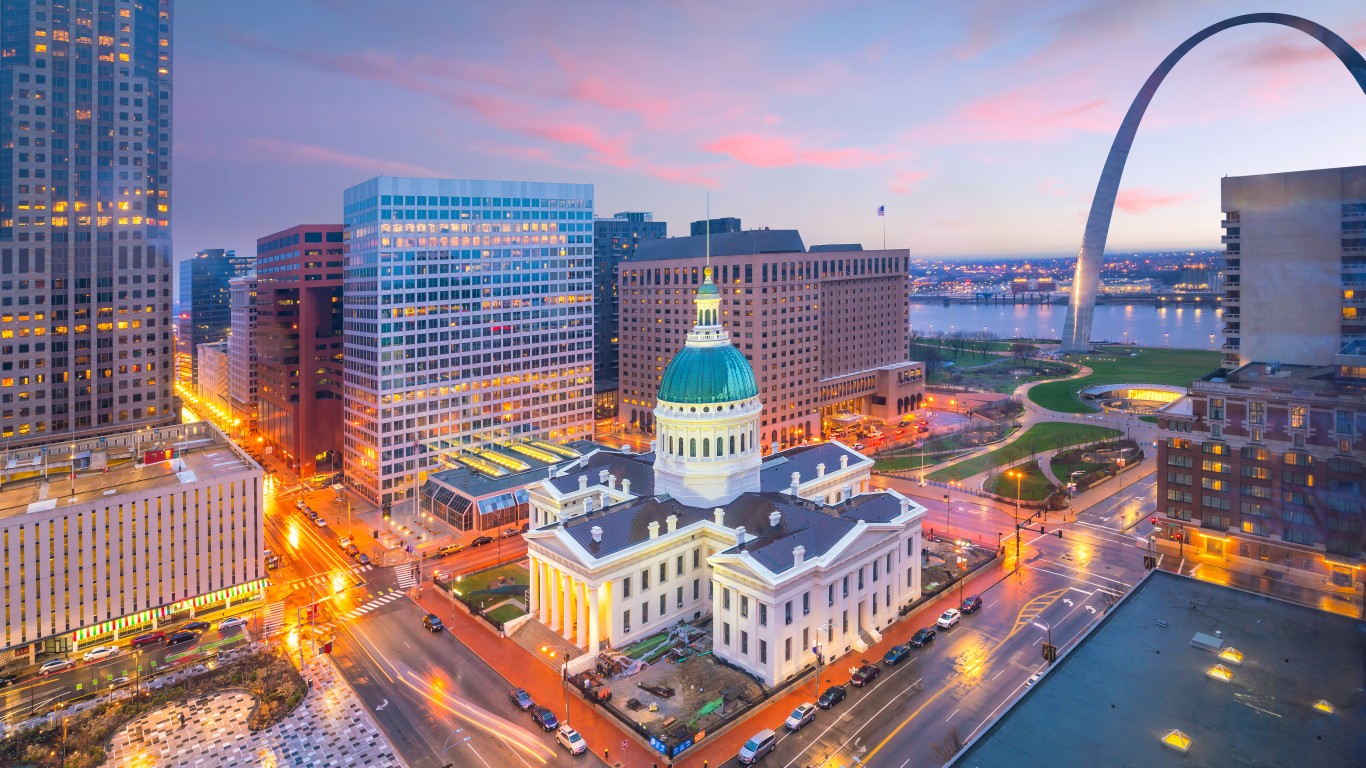
11. Missouri
> Pct. of population that identifies as LGBTQ: 3.8%
Missouri has no state laws prohibiting discrimination in employment, lending, or policies affecting students based on sexual orientation or gender identity. In fact, a state law prohibits local schools and school districts from passing their own LGBTQ non-discrimination laws. There is no ban on conversion therapy.
[in-text-ad]
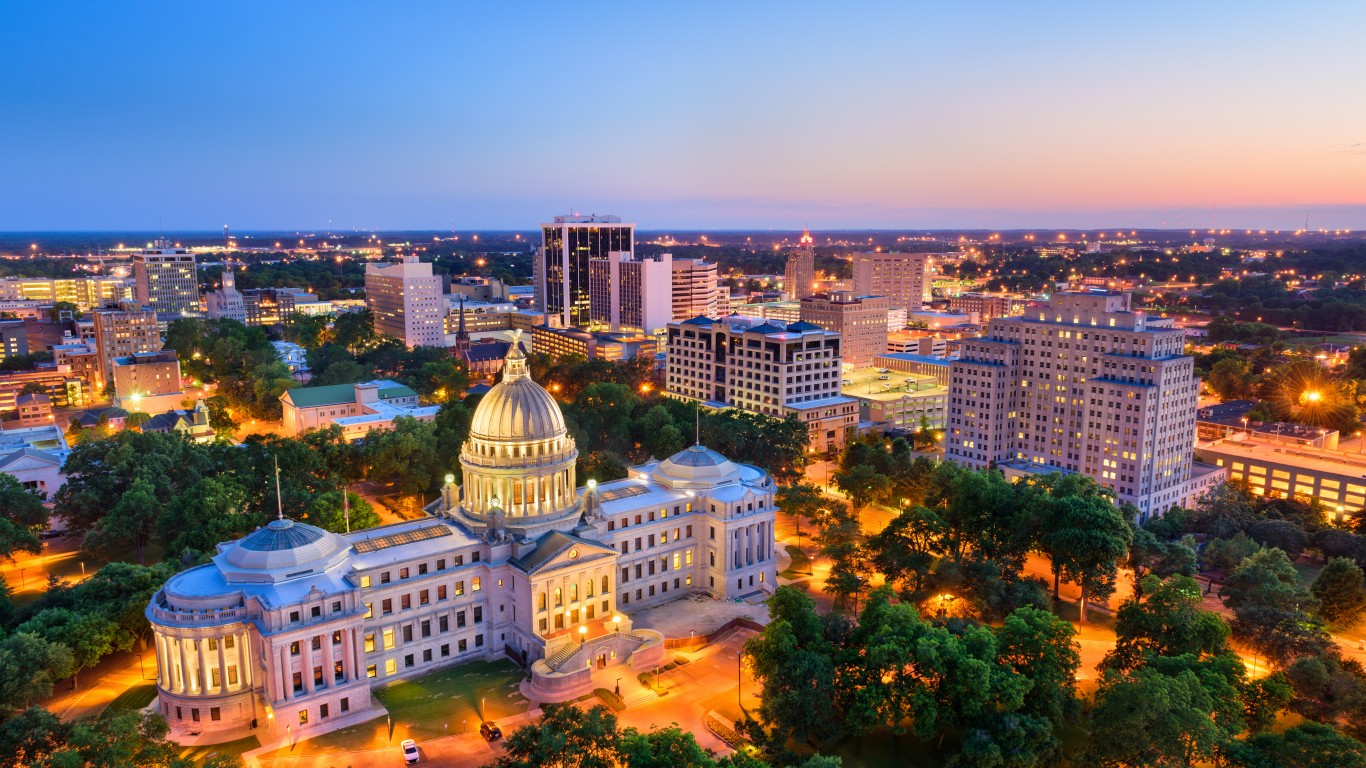
12. Mississippi
> Pct. of population that identifies as LGBTQ: 3.5%
Like eight other states, Mississippi has laws that specifically target its LGBTQ communities rather than just excluding them from non-discrimination protections. The state allows child welfare agencies and medical professionals to invoke religious exemptions in denying services based on sexual orientation or gender identity, and explicitly prohibits educators from discussing LGBTQ issues in schools.
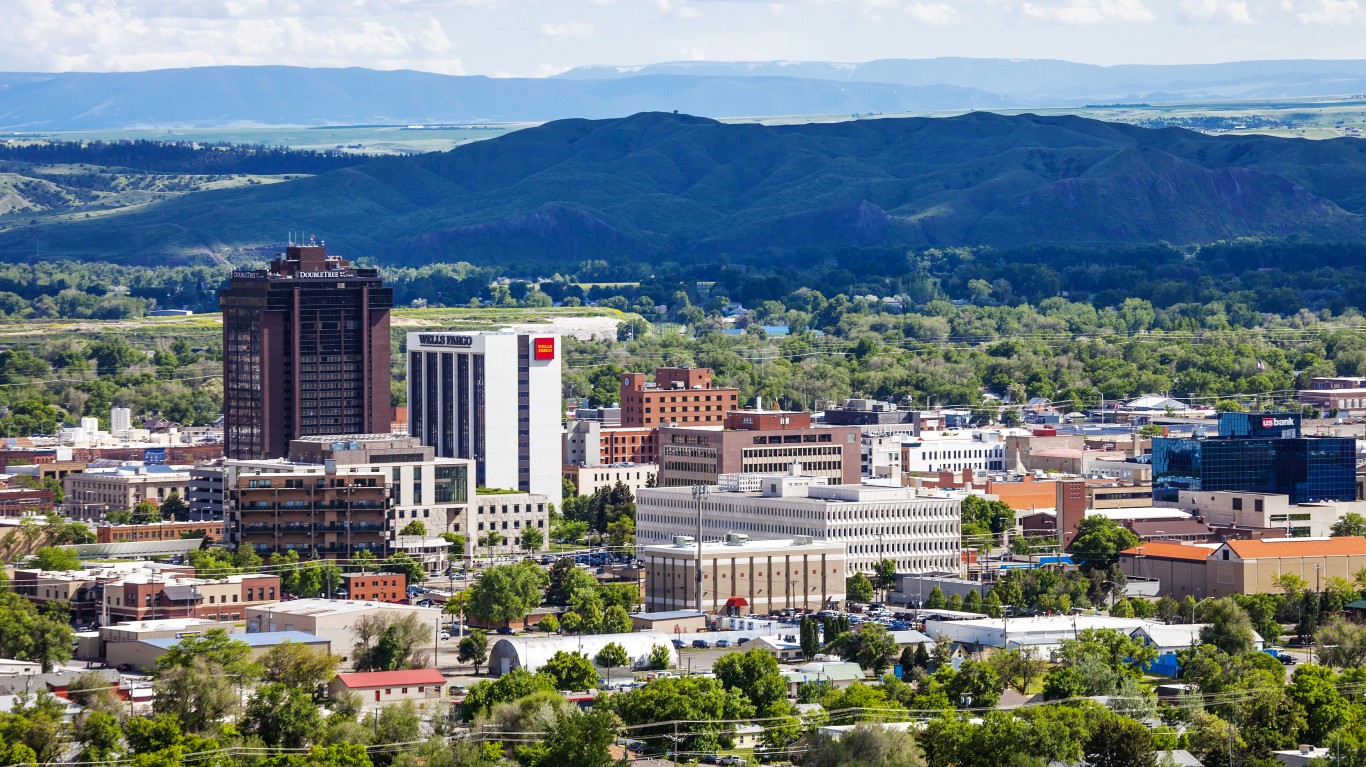
13. Montana
> Pct. of population that identifies as LGBTQ: 2.9%
Montana has no state laws against anti-LGBTQ discrimination in employment, housing, public accommodation, or lending. State law requires parental notification when LGBTQ topics are to be taught in schools and allows parents to opt out their children.
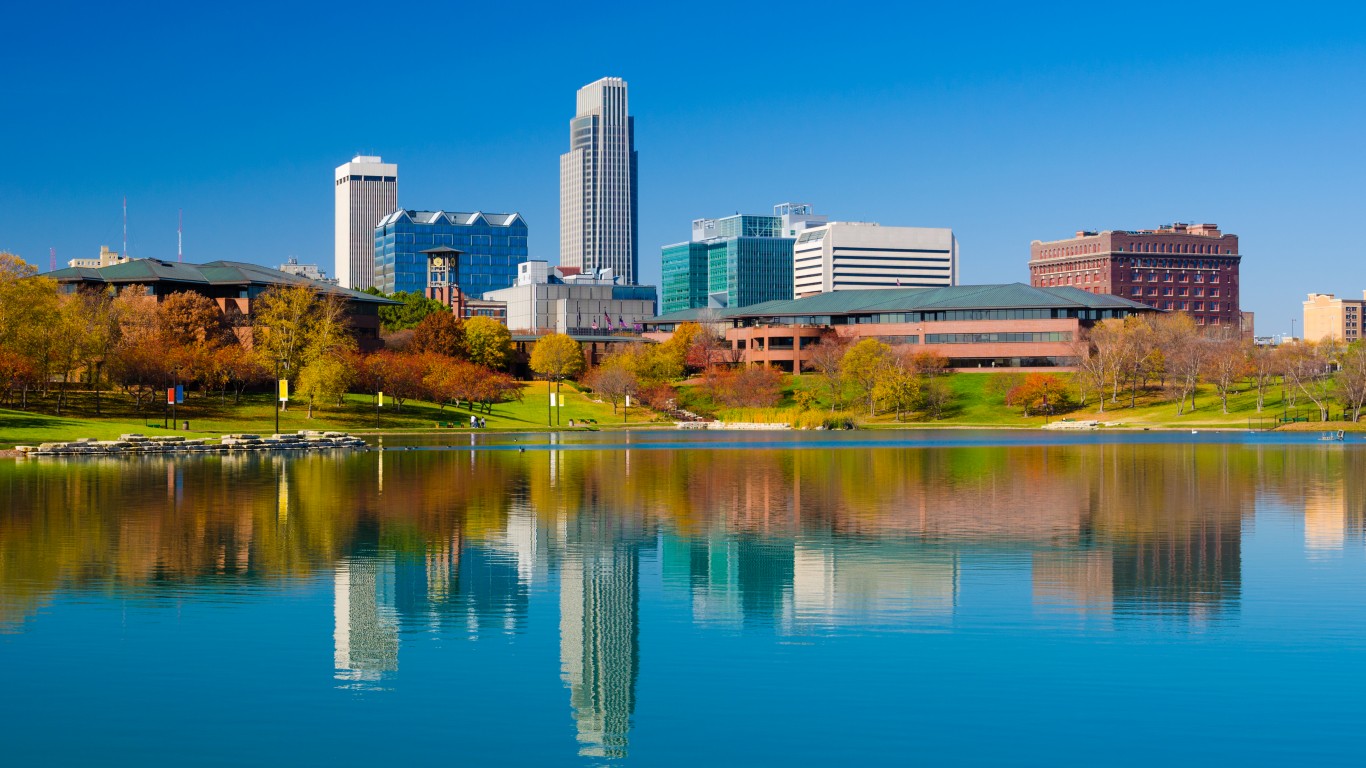
14. Nebraska
> Pct. of population that identifies as LGBTQ: 3.8%
Like some other states with low LGBTQ equality ratings, Nebraska treats sexual orientation more favorably than gender identity. Nebraska doesn’t apply a broad interpretation of religious exemption-based LGBTQ discrimination, but it has no laws protecting people from discrimination based on sexual orientation or gender identity in matters of adoption, foster care, definition of spouse or partner, lending, or private health insurance services.
[in-text-ad-2]

15. North Carolina
> Pct. of population that identifies as LGBTQ: 4.0%
North Carolina has no laws protecting LGBTQ people from discrimination related to adoption, foster care, or definition of spouse/partner. There are state laws that protect people from employment discrimination based on sexual orientation or gender identity, but no such laws regarding housing, lending, private health insurance, or treatment of youth in the child welfare system.
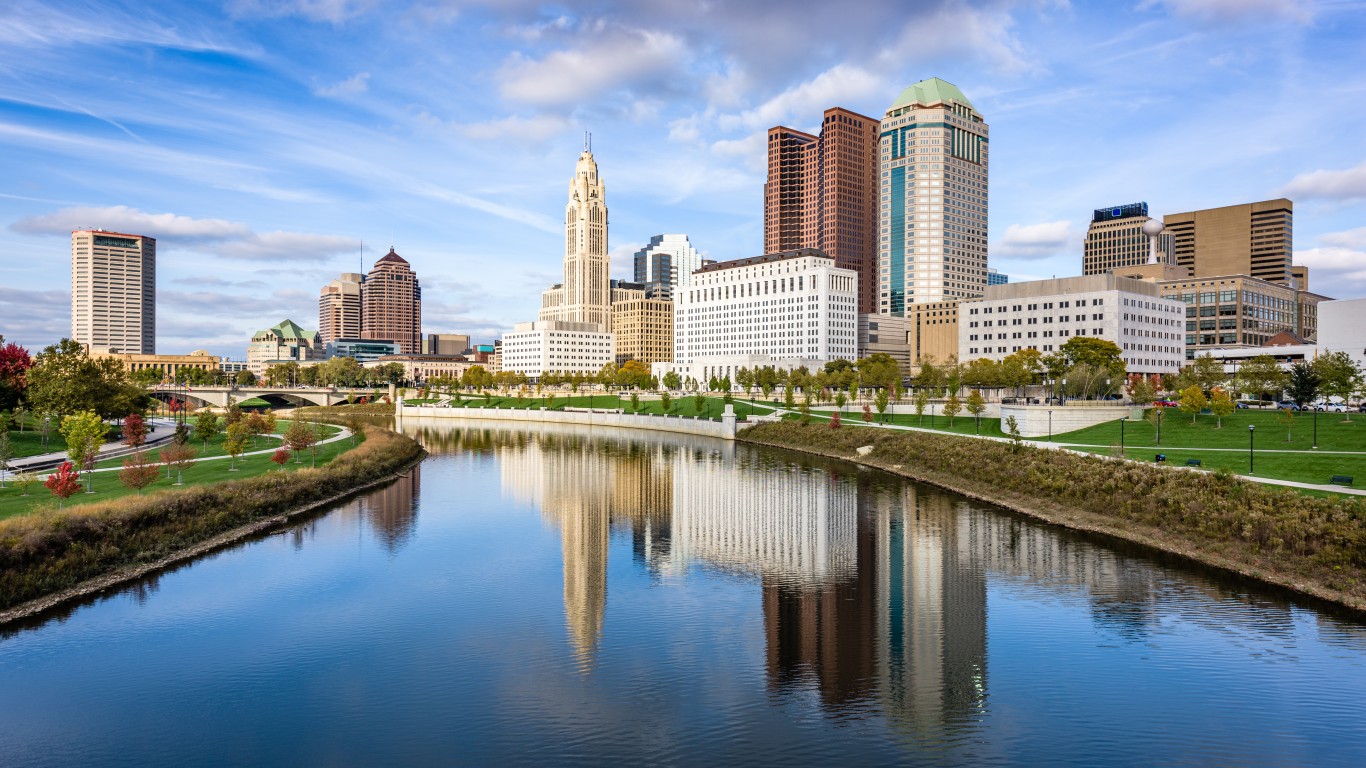
16. Ohio
> Pct. of population that identifies as LGBTQ: 4.3%
Ohio excludes sexual orientation and gender identity from its hate crime laws and permits the “panic defense,” allowing defendants to argue temporary insanity regrding assault or murder charges stemming from unwanted same-sex sexual advances. Ohio allows discrimination in Medicaid policy, private health insurance, and state employee health benefits based on gender identity. Medical professionals in Ohio may cite religious belief to deny services based on sexual orientation and gender identity.
[in-text-ad]
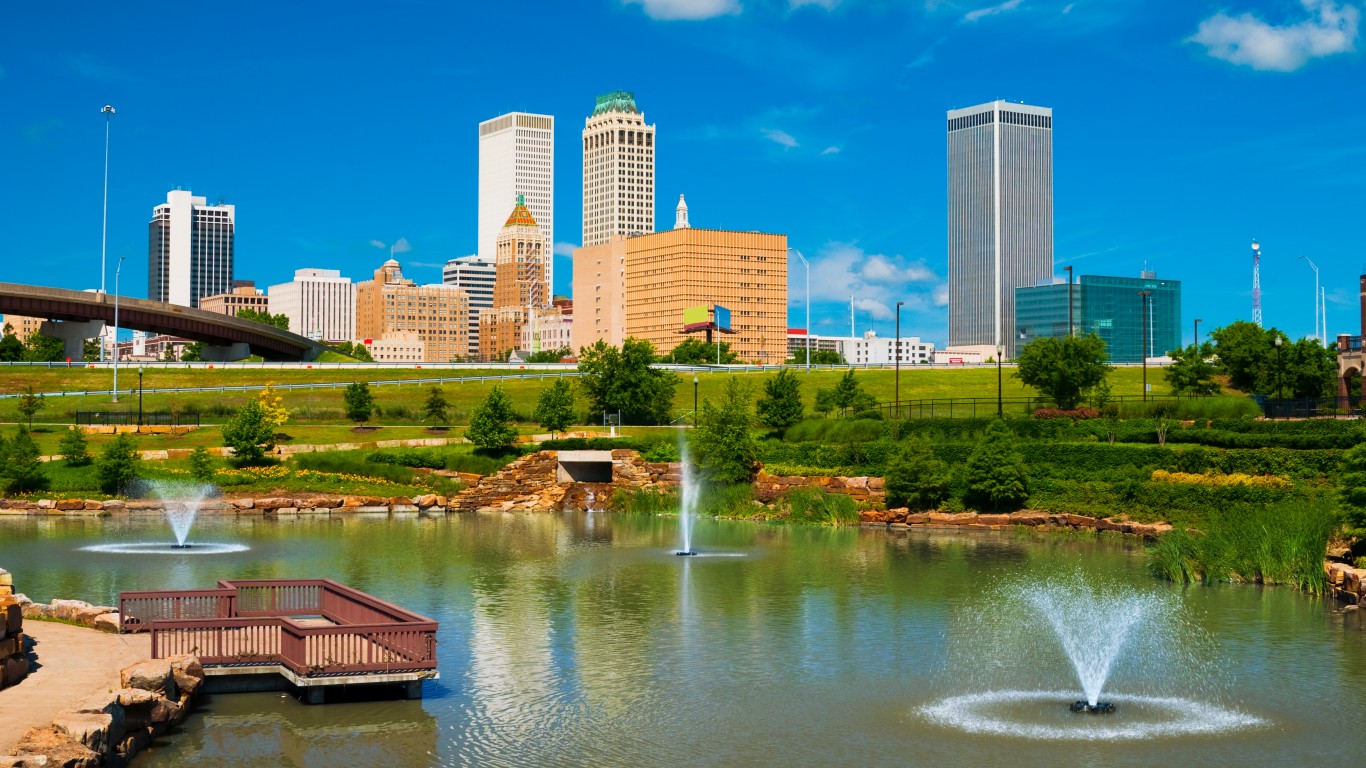
17. Oklahoma
> Pct. of population that identifies as LGBTQ: 3.8%
Oklahoma is one of nine states that rank particularly low on LGBTQ equality because of numerous laws that target LGBTQ people rather than just excluding them from anti-discrimination laws. The state has a broad interpretation of religious exemption laws that includes denying child welfare services based on sexual orientation or gender identity. It also prohibits educators from discussing LGBTQ issues in schools.
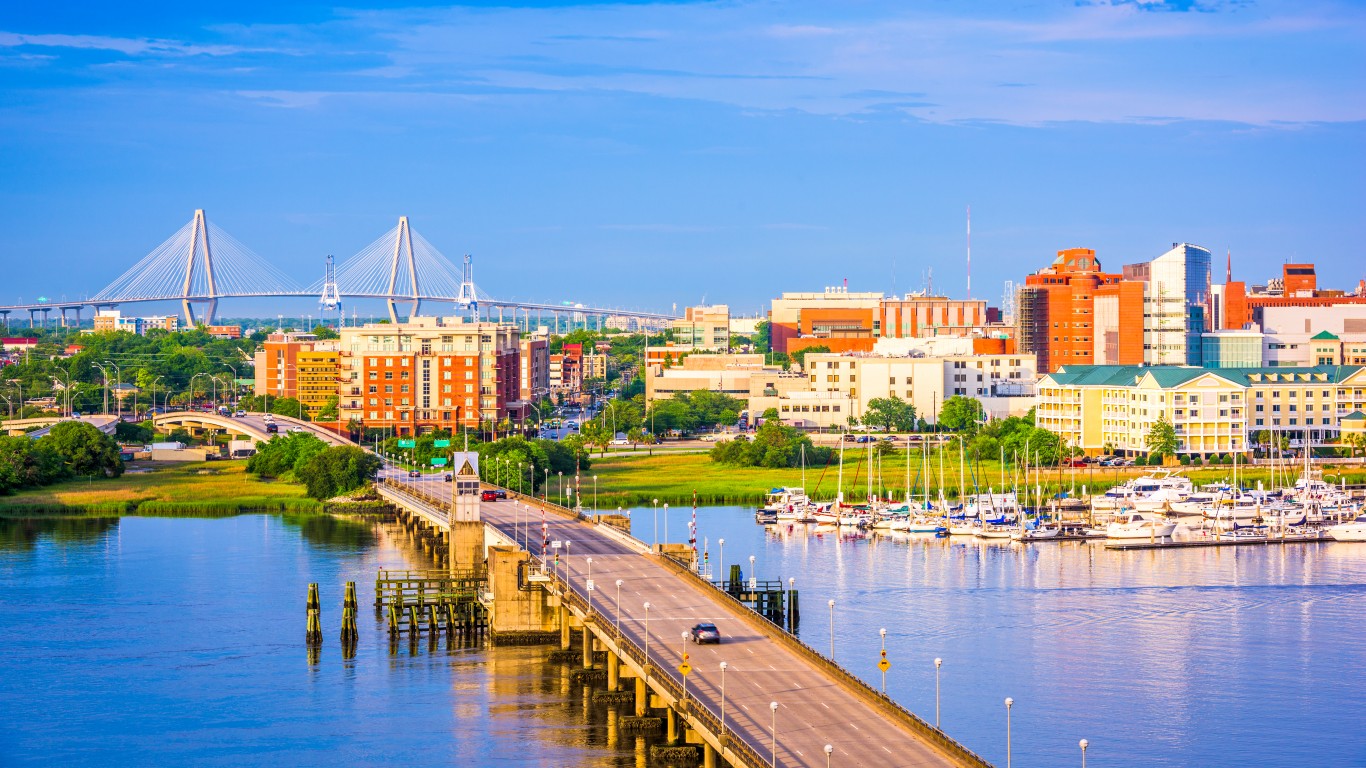
18. South Carolina
> Pct. of population that identifies as LGBTQ: 3.5%
South Carolina is one of nine states with a low LGBTQ rating based on numerous laws that explicitly target persons based on sexual orientation or gender identity. This stems mostly from its broad interpretation of religious exemptions, allowing child welfare services providers to cite religious belief as the basis for discrimination. Its anti-discrimination laws pertaining to employment, housing, public accommodation, lending, and state-employee policies exclude protections based on sexual orientation and gender identity.
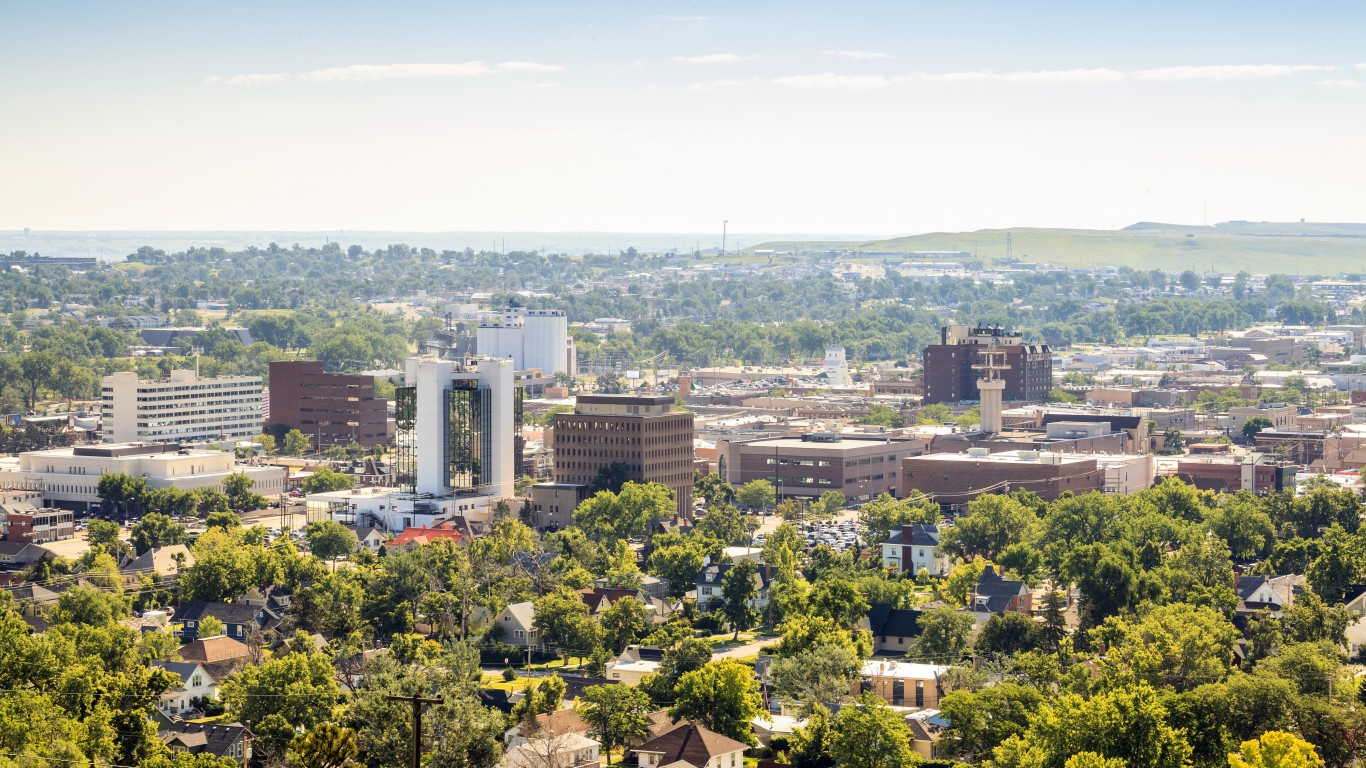
19. South Dakota
> Pct. of population that identifies as LGBTQ: 3.0%
South Carolina is one of nine states with a low LGBTQ rating based on numerous laws that explicitly target persons based on sexual orientation and/or gender identity. It applies a broad interpretation of religious exemption laws and allows providers of child welfare services to cite religious belief as the basis for denying assistance based on sexual orientation or gender identity.
[in-text-ad-2]
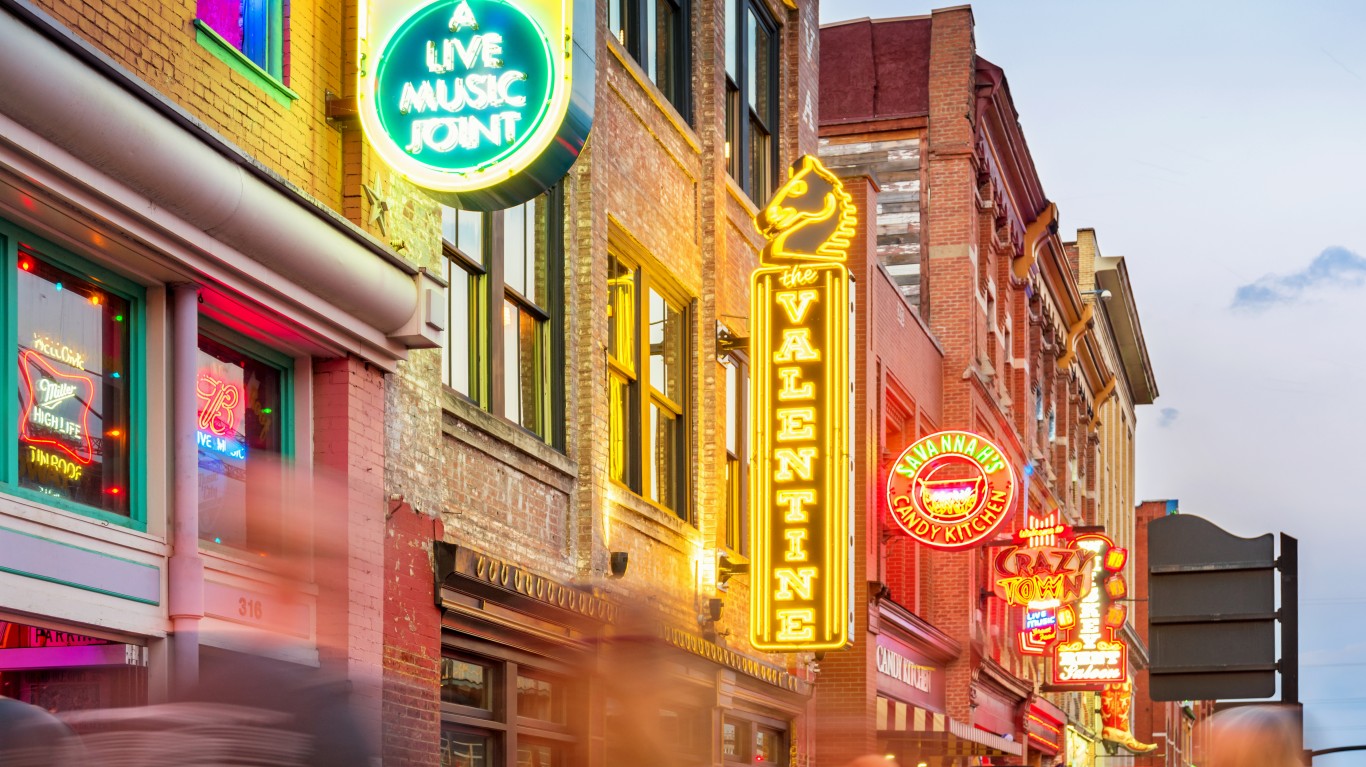
20. Tennessee
> Pct. of population that identifies as LGBTQ: 3.5%
Tennessee ranks near the bottom of all states when it comes to LGBTQ equality. It has no inclusionary language in anti-discrimination laws pertaining to employment, housing, public accommodation, lending, or state-employee policies. It prohibits cities and counties from passing nondiscrimination laws for LGBTQ people. Its broad interpretation of religious exemption laws includes allowing child welfare service providers and medical professionals to use religious belief to discriminate based on sexual orientation or gender identity.
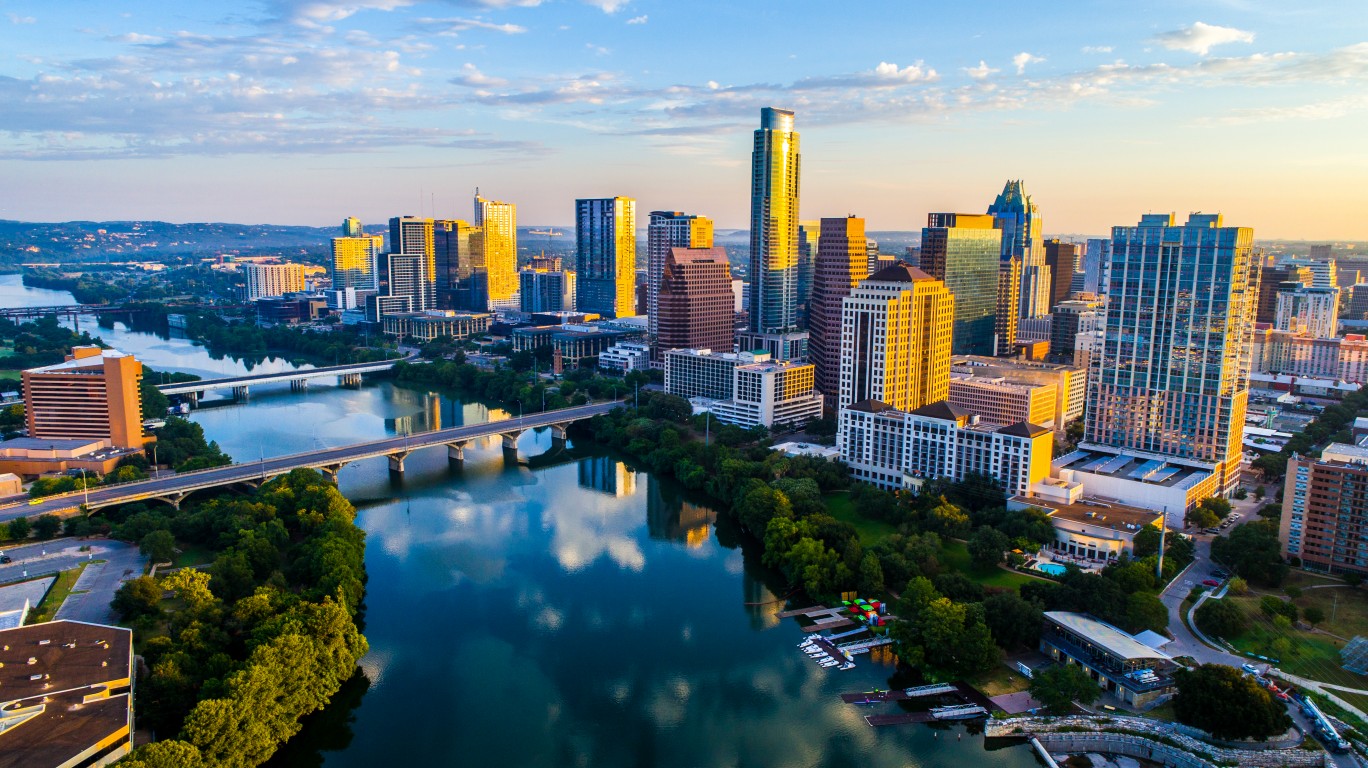
21. Texas
> Pct. of population that identifies as LGBTQ: 4.1%
Texas applies a broad interpretation of religious exemptions that includes allowing LGBTQ discrimination based on religious belief. The state bars educators from discussing LGBTQ issues in schools and allows the “panic defense” in court by defendants charged with the assault on or murder of LGBTQ people, allowing them to declare temporary insanity in cases of same-sex sexual advances.
[in-text-ad]

22. West Virginia
> Pct. of population that identifies as LGBTQ: 4.0%
Among these states that offer few protections to LGBTQ people, West Virginia does have some progressive laws, including nondiscrimination protections in the areas of adoption and foster care for both sexual orientation and gender identity. Where it fails is in nondiscrimination laws pertaining to employment, housing, public accommodation, lending, state-employee policies, and private health insurance. There is no state ban on conversion therapy.
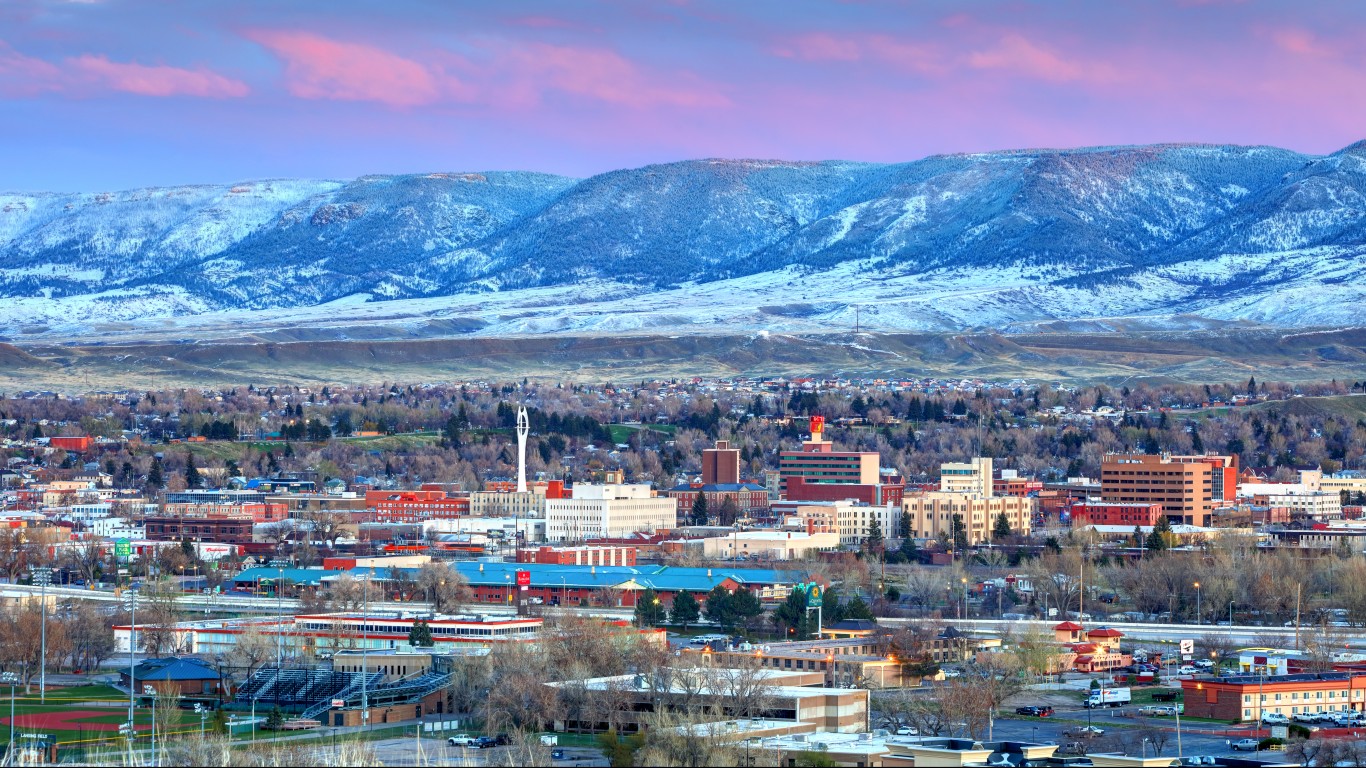
23. Wyoming
> Pct. of population that identifies as LGBTQ: 4.3%
Twenty-three years after the brutal torture and fatal beating of gay University of Wyoming student Matthew Shepard, the state still lacks hate crime laws covering LGBTQ people. It allows the so-called panic defense that permits defendants in assault and murder cases to plead temporary insanity if their violent actions were in response to uninvited same-sex sexual advances. It also excludes sexual orientation and gender identity from its non-discrimination laws.
Are You Still Paying With a Debit Card?
The average American spends $17,274 on debit cards a year, and it’s a HUGE mistake. First, debit cards don’t have the same fraud protections as credit cards. Once your money is gone, it’s gone. But more importantly you can actually get something back from this spending every time you swipe.
Issuers are handing out wild bonuses right now. With some you can earn up to 5% back on every purchase. That’s like getting a 5% discount on everything you buy!
Our top pick is kind of hard to imagine. Not only does it pay up to 5% back, it also includes a $200 cash back reward in the first six months, a 0% intro APR, and…. $0 annual fee. It’s quite literally free money for any one that uses a card regularly. Click here to learn more!
Flywheel Publishing has partnered with CardRatings to provide coverage of credit card products. Flywheel Publishing and CardRatings may receive a commission from card issuers.
Thank you for reading! Have some feedback for us?
Contact the 24/7 Wall St. editorial team.
 24/7 Wall St.
24/7 Wall St. 24/7 Wall St.
24/7 Wall St.